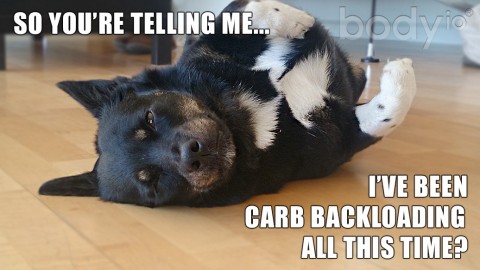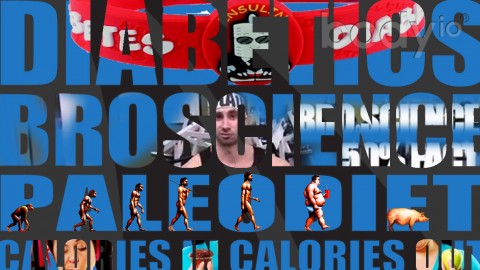don’t have the physique of a body builder. I’d say I’m athletic and lean. My nutrition is on point so my muscles appear denser, fuller and more defined compared to what most people are used to seeing. I am well aware that this look appeals to some, while to others, not so much.
A couple of weeks ago, I entered the changing room after an intense upper body workout. I’d had a wicked pump and I was extremely vascular at the time. I locked eyes with an elderly woman who I had noticed earlier glancing over at me in the weight room while she was walking on the treadmill. As I walked towards her she blurted out, “Lifting weights is not very lady like. The boys are not going to be attracted to that.” That being me, as indicated by her finger pointed straight at me while waving it up and down from my head to my toes.
I froze, like a deer in the headlights. The other women in the changing room looked away, into their lockers or down into their gym bags. Vicarious embarrassment makes us squirm. I’m sure everyone was relieved when I replied with a chuckle and said, “Well, I’m sure glad that my husband has different taste than you.” I walked past her with a skip in my step and went about my day as if nothing had happened.
Later that evening I was still laughing about this incident and I posted a Facebook status about it. The tone of my post was intended to be comical, but the replies were not. The responses were full of anger towards this lady who had fit shamed me. I received comments, messages and emails from women expressing their frustration. Some suggested that I write an article about fit shaming to “put people in their place.”
I was reluctant to write about this topic because I feel that most fit shaming articles just end up perpetuating the fit shaming, fat shaming cycle. A cycle I’d rather not feed in to- which is why I’m writing about how it can end with you.
However, I was intrigued by the anger felt by other women on my behalf. Anger that I, the person who got shamed, did not feel. So here you are now, halfway through an article I never thought I’d write.
What is shaming? Brene Brown, a shame researcher, defines shame as “the intense painful feeling or experience of believing we are flawed and therefore unworthy of acceptance and belonging.” We are somewhat hardwired to feel shame. It keeps us in line within society. Adults shame children to teach a lesson. It’s a form of bullying.
“We live in a world where most people still subscribe to the belief that shame is a good tool for keeping people in line. Not only is this wrong, but it’s dangerous. Shame is highly correlated with addiction, violence, aggression, depression, eating disorders, and bullying.” – Brene Brown
Shaming is very effective unless the person being shamed truly could not care less about what other people think of him.
Ten years ago, my encounter with the elderly woman would have set me off. Actually, ten years ago I probably wouldn’t have been a target of fit shaming, but that’s an entirely different story. Whatever the case, I would have either reacted in the moment by defending myself, or bottled up my emotions and quietly beat myself up about it over time. I would have allowed her words to bother me for days, weeks, possibly years.
What changed between then and now? Did I wake up one day with all the confidence in the world, resilient to other people’s opinions?
Definitely not.
So what changed?
The honest truth is that I got tired of wasting my precious energy worrying about what other people think.
After accepting that I can’t control what people think, and that I would never be able to please everyone, I was left with no other choice than to teach myself to react differently. It was a conscious unlearning and learning process, just like with anything else in life.
First I asked myself why I cared so much about what other people think, particularly people I barely knew.
Could it be fear? Perhaps. But fear of what?
I couldn’t come up with a good answer for either of these questions. When I don’t have a good reason to believe something, I can begin to let it go.
Then I had to unlearn my current reaction. This meant I could no longer hide from situations that might lead to being shamed, and when it happened I had to choose to react differently. I trained myself to literally shrug my shoulders and walk away. While this was a good way to stop an emotional outburst in the moment, it didn’t prevent the situation from bothering me after the fact.
The next step required reflecting on the situation and finding empathy for the person who shamed me. Empathy is the capacity to understand what other people are experiencing from their frame of reference. It’s putting yourself in their shoes. Empathy allows me to see that the elderly lady in the changing room grew up in a totally different time and she was most likely trying to help me, not hurt me. This is not the case in all situations. Some people are downright cruel, which usually stems from insecurity. In those instances, being grateful that you are not in their shoes will bring about feelings of compassion rather than anger and hurt.
“If we can share our story with someone who responds with empathy and understanding, shame can’t survive.” – Brene Brown
Learning requires practice. What at first feels like forced baby steps will soon be second nature. You will become resilient to comments that are not worthy of your energy. This power doesn’t mean that we ignore all opinions; it simply means that we have the energy to focus on the ones that matter. Once you understand and reject shame, you are less likely to shame others and more likely to help stop the vicious cycle.
“Because true belonging only happens when we present our authentic, imperfect selves to the world, our sense of belonging can never be greater than our level of self-acceptance.” – Brene Brown












